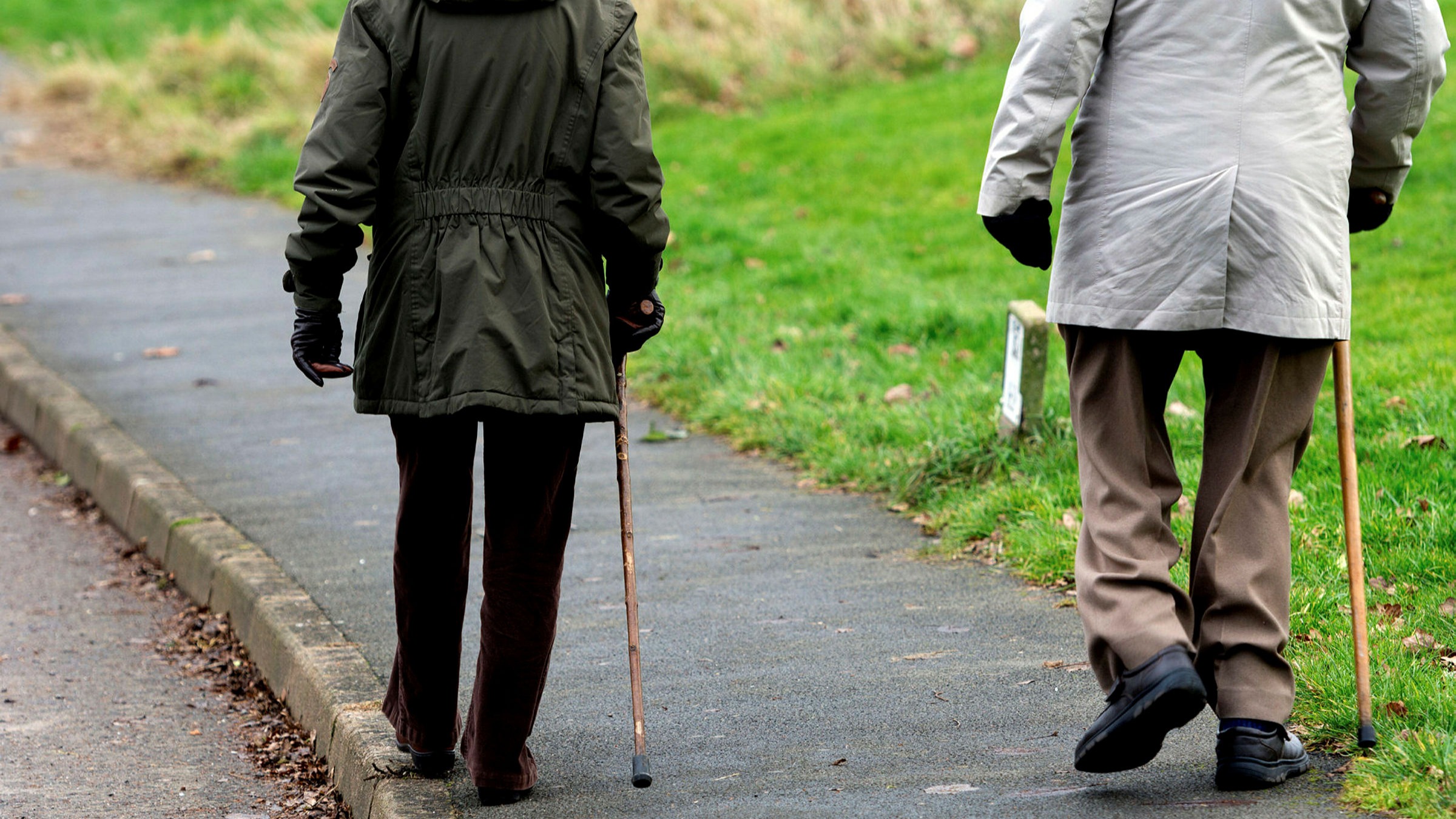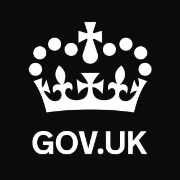Cowper's Cut 222: No smoke without fire

After the bumper fun of last week's 'Health Week Two: This Time It's Fatuous', I'd like to promise that this is a shorter summary. But it's been quite a week.
Yet again.
The news on system performance is 'no better: it is much the same': the Royal College of Emergency Medicine's new FOI-based report finds that over 380,000 people (that's more than 1,000 people a day) faced A&E waits of over 12 hours every day in 2021.
Documents leaked to The Independent's Rebecca Thomas state that the Government's manifesto commitment to have 50,000 more nurses by 2024 will be missed.
The Healthcare Safety Investigation Bureau's interim report into ambulance handovers looked at different aspects of this issue.
Health Service Journal's Emily Townsend finds that prescribing for mental health conditions soared during the pandemic.
The BBC Panorama investigation into a GP practice run by Operose Health was damning.
Waits and measures
The latest NHS waiting time data for RTT and urgent and emergency care emerged, and unsurprisingly saw the waiting list backlog kiss the 6.5 million mark.
Overall the waiting list and waiting times got longer in April, while the NHS focused on treating 104 week waiters #nhswaits https://t.co/WNKHdUFKMe
— Rob Findlay @ Insource (@gooroohealth) June 16, 2022
As ever, Rob Findlay of Insource offers peerless analysis.
And the Health Select Committee published the Government Response to its cancer services report which evaluated progress as 'inadequate'. The Committee’s report (published in April) found a real risk that gains in cancer survival would reverse without significant extra efforts, saying that members did not believe the NHS was on track to meet the Government’s 75% early diagnosis target by 2028.
It concluded neither earlier diagnosis nor additional prompt cancer treatment would be possible without addressing gaps in the cancer workforce, but found little evidence of a serious effort to do this.
The Government Response published today, said it was "premature" for the Committee to suggest that progress on early cancer diagnosis was ‘off track’.
Health and Social Care Committee chair Jeremy Hunt commented, “earlier cancer diagnosis is the key to improving overall survival rates. Without wholesale improvement, we do not believe that the NHS is on track to reach the government’s target on this and so it is deeply concerning that Ministers label our warning as premature.
“For this ambition to be met, urgent increases are needed to plug critical gaps in the cancer workforce. Instead of a detailed plan to address these shortages, we are offered a ‘new vision for how we will lead the world in cancer care’. These are simply words; the government cannot tell us how or when a single extra oncologist will be recruited.”
NHS ConfedExpo 2022
This week saw the first major-scale conference post-pandemic, with NHS ConfedExpo in Liverpool.
The metaphors wrote themselves, as the opening day saw a massive mismatch between the 5,000-odd registered delegates and the available badge-printing capacity, forcing 50-minute queues around the venue. Given the week's record backlog news, this felt very on-brand.
Things got little better once inside, with an event principally sponsored by two major tech companies - Palantir (COI declaration - I sit on their advisory board) and Google Health - having no working wi-fi for the majority of the venue, and most critically, the exhibition hall. Exhibitors are the financial basis of this event, and they noticed this in a big way. The organisers' choice not to provide delegates with food, and not to warn them of this policy, is also unlikely to evaluate well.
Lord Adebowale was a high-quality chair for the main stage, with a strong opening speech. Due to the entry delays, I only caught the end of NHS England chair Richard Meddings' speech - but those who saw it all suggested that it was humble and listening.
NHS England's no-longer-new chief executive Amanda Pritchard gave an energetic and perky keynote speech. It had to be both of those things as a minimum, and it was - so I guess that's going to be deemed a success.
It was very long on one thing: a slogan. The phrase "we are the NHS" appeared 24 times (which, even if you want to make it clear it's your big slogan for the speech, is about 12 too many. Repetition of your slogan is good, but clubbing people to death with it is bad: this was the latter.)
That is, unless Ms Pritchard's speech aimed to ensure that nobody listening might have thought they were at the annual Blockbuster or Netflix employees' do, following The Saj's nonsense phrase last week.
It was, however, short on prioritising anything at all, in any way. Ms Pritchard is amply smart enough to know that 'when everything's a priority, nothing's a priority', yet nonetheless cantered headlong into that trap.
Ms Pritchard did announce a review of NHS bed capacity:
The NHS is launching a major review of bed capacity and needs more, @AmandaPritchard tells #nhsconfedexpo pic.twitter.com/yalzk7LAR1
— Dave West (@Davewwest) June 15, 2022
This apparently came as a surprise to NHS England media people, who promptly tried to hassle HSJ journalists for reporting what Ms Pritchard had said out loud in front of a big audience in the real world. These comms chancers sought to get Dave West and colleagues to mis-report that the proposal was not for a review of NHS bed capacity. Happily (and quite rightly), my erstwhile HSJ compadres promptly and precisely appraised those NHSE media people of the direction in which they should piss.
Ms Pritchard took one actual audience question after her speech: it was noticeable that she very much did not answer the question asked, on whether NHS staff "have nothing left in the tank". Her speech was optimistic, but cliché-heavy and short on new ideas and delivery methods.
The huge presence of NHS England staff at the event was very noticeable: the 800+ NHSE delegates representing about a tithe of their workforce. There will, rightly, be FOI questions about the cost of this, and the demonstrable added value.
Confed CE Matthew Taylor's speech was a decent effort.

Health Secretary and shrug personification The Saj opened his speech with the obvious and massive lie of how happy he was to attend.
Ahem. The majority of delegates clearly knew that Mr Javid had actively sought to avoid attending, and only confirmed a few days beforehand, causing much last-minute programme-juggling.
The SOS's speech had only one line in common with Ms Pritchard's: both agreed that the current model of primary care is not delivering properly. This point was picked up by NHSE director of primary care Dr Nikki Kanani GP, who answered my question by confirming that the Ian Dodge-driven debate over independent contractor status was a contributor to low GP professional morale. Dr Kanani also confirmed that the GP funding formula will be revisited.
Yet what none of them articulated is what model of primary care will deliver.
And this leads to the broad truth evident from the event - there is no actual plan to improve things.
There is STILL no actual plan to improve things.
I wrote this about our plan-free status in late October 2021, and nothing since then has changed in any meaningful way. The electoral recovery plan is all 'goals' 'aims' and 'ambitions'. It is not a plan.
Still, I got a response (if not an answer) to my question to The Saj: asking what he believed were the root causes of dire A&E and ambulance performance, and how he would use his new statutory powers to address them.
The Saj blamed Covid19: “the root cause is linked to the pandemic - those who stayed away, and that's understandable. Also, there's been the pandemic impact on social care and capacity in the system, so many hospitals struggle with delayed discharges, and that has an impact on flow through".
Blaming Covid19 is nonsense, as most informed observers promptly pointed out: the Royal College of Emergency Medicine's response was particularly to the point.
Steve Black's answer was also good:
Totally convincing explanation, just as I'd expect from Javid (not). pic.twitter.com/bgBFxzowDU
— 𒊓𒅂𒁓𒐗𒐕𒐗 Steve the skeptic (@sib313) June 15, 2022
Questions for The Saj
During the Commons Health Questions, SOS Sajid 'The Saj' Javid told the Commons that he will set out a delivery plan for NHS leadership, and claimed that in places, bad management has been left in place for too long. Given the party of Government for the past 12 years, the irony of his remark didn't seem clear to him.
Taking a battering over the Operose Health GP surgery issue, The Saj firstly talked about transport strikes, and then told his opposite number Wes Streeting that "he thinks he's the second coming of Tony Blair, where in reality he's a pound-shop Ed Miliband". The Saj can make us laugh ("a Blockbuster service in an age of Netflix"), but it's invariably unintentional.
The Saj got even funnier when he wrote to shadow health secretary Wes Streeting, demanding that Streeting condemn this week's rail strikes (and evidently unaware that the Transport Secretary role is presently held by The Saj's fellow Conservative, Grant 'millionaire Michael Green' Shapps).
Streeting's reply is a masterclass:
.@sajidjavid,
— Wes Streeting MP (@wesstreeting) June 17, 2022
Thanks for your letter, but it looks like you confused me for @grantshapps - the person who could prevent these strikes.
But as you’ve written to me, can you finally answer my previous letter to you about the years you avoided paying tax in Britain? pic.twitter.com/AYpXQczVZk
The data day
The new policy paper on data from the Department For Health But Social Care appeared: 'Data Saves Lives: Reshaping Health And Social Care With Data' seems broadly clear and sensible.
Bollocks Of The Week: Torygraph wokery nonsense
To the considerable astonishment of absolutely nobody, The Telegraph was the home of the clear and comfortable winner of the 'Cut' Bollocks Of The Week Award, for this piece of tragic nonsense about how the Messenger Review had been hijacked by wholesale wokery (is this better or worse than retail wokery, do we think?).
There is no actual evidence presented for the claim. It's merely a festival of assertions: the purest Torygraph bullshit.
To publish this nonsense in the same week as the British Medical Association launched this major report about the experiences of BME medical staff, and as the Mail (yes, really) reported on 1,000 foreign GPs in training being at risk of deportation because of Home Office appallingness, takes some gall.
The Telegraph has little else.
Cronyvirus and Coronamillions update
Striking, given the perceived effectiveness of the schemes, that in no month of the pandemic - even at the very peak of vaccinations - did Britain’s vaccine programme ever cost as much as test & trace.
— Ed Conway (@EdConwaySky) June 13, 2022
Total running cost (based on contribution to GDP):
T&T: £32bn
Vaccines: £8bn pic.twitter.com/fa9m9wJB8e
Sky News' fiercely bright economics editor Ed Conway spotted ONS data on Gross Value Added, and looked at Test And Trace's role in UK GDP. He notes that "in no month of the pandemic - even at the very peak of vaccinations - did Britain’s vaccine programme ever cost as much as test & trace. Total running cost (based on contribution to GDP): T&T: £32bn Vaccines: £8bn". That is a remarkable stat.
Quite something for the programme that the Public Accounts Committee judged had "not achieved its main objective to help break chains of COVID-19 transmission and enable people to return towards a more normal way of life ... (since the end of October 2020)the country has had two more national lockdowns and case numbers have risen dramatically”.
The Sunday Times also had a decent story about Conservative hereditary peer the Earl of Shrewsbury offering to help open doors to Government contacts for a private firm, and being paid £3,000 a month.
The Alan comeback
Oh look @HPIAndyCowper pic.twitter.com/olADfPeDEG
— Richard Humphries 💚 (@RichardnotatKF) June 13, 2022
Our Partridgesque hero continues to disappoint us, his fans, with only relatively muted efforts at political self-publicity this week: Alan restricted us to this nonsense endorsing The Saj's notion that Labour's Wes Streeting is the Transport Secretary.
Perhaps The People's Partridge is in mourning for the collapse of the cryptocurrencies that he so loves? To his non-blockchain credit, he is doing a sponsored climb of Mont Blanc next month for the Cambridge Children's Hospital charity. Details here.
Recommended and required reading
Bloomberg revealed that Optum (UnitedHealth's UK presence) plan to offer over $1.5 billion to buy GP data system EMIS. This is A Lot Of Money: a near-50% premium over EMIS shares' current trading price. It is not currently clear why that deal would make financial sense. But it'll probably interest EMIS rivals System C.
Professor Devi Sridhar has this sensible piece in The Guardian on how we can prepare for oncoming waves of Covid19
A new report from the IPPR and Future Health

Financial Times write-up on how BioNTech is spending its Covid19 vaccination billions
Prominent analyst Steve Black's latest update on NHS 'strategy' is a blistering read.
The Times' news story about PM Boris Johnson's attempts as Foreign Secretary to nepotistically get his then-mistress/girlfriend Carrie Symonds a job appeared and then disappeared.
A detailed piece of reporting on the Tavistock and Portman's transgender clinics.

